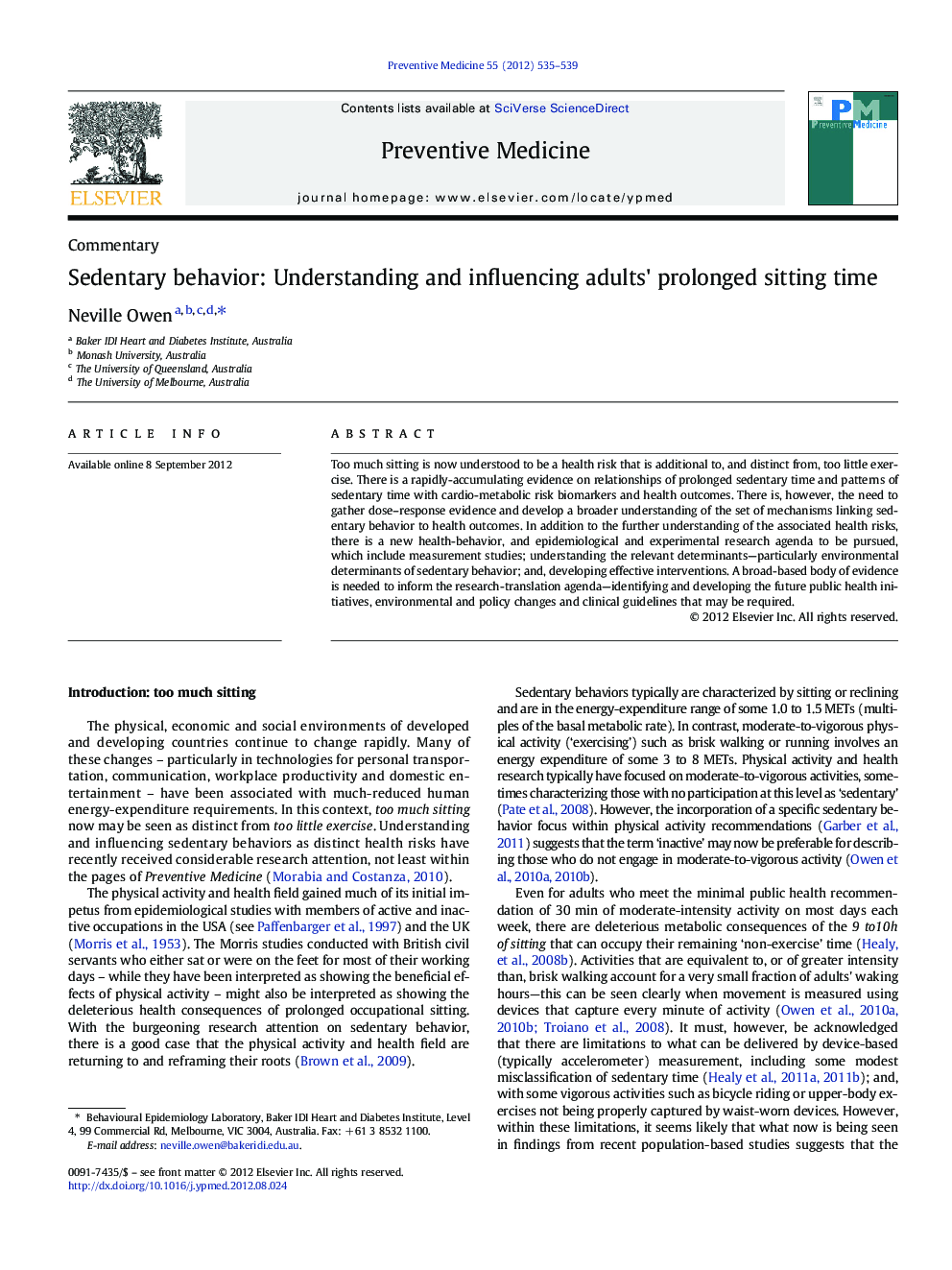| Article ID | Journal | Published Year | Pages | File Type |
|---|---|---|---|---|
| 3100652 | Preventive Medicine | 2012 | 5 Pages |
Too much sitting is now understood to be a health risk that is additional to, and distinct from, too little exercise. There is a rapidly-accumulating evidence on relationships of prolonged sedentary time and patterns of sedentary time with cardio-metabolic risk biomarkers and health outcomes. There is, however, the need to gather dose–response evidence and develop a broader understanding of the set of mechanisms linking sedentary behavior to health outcomes. In addition to the further understanding of the associated health risks, there is a new health-behavior, and epidemiological and experimental research agenda to be pursued, which include measurement studies; understanding the relevant determinants—particularly environmental determinants of sedentary behavior; and, developing effective interventions. A broad-based body of evidence is needed to inform the research-translation agenda—identifying and developing the future public health initiatives, environmental and policy changes and clinical guidelines that may be required.
